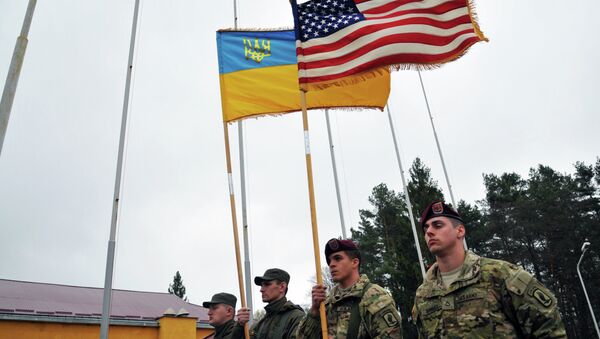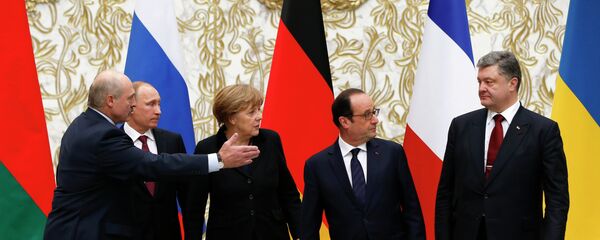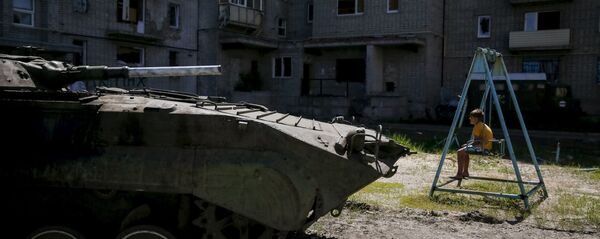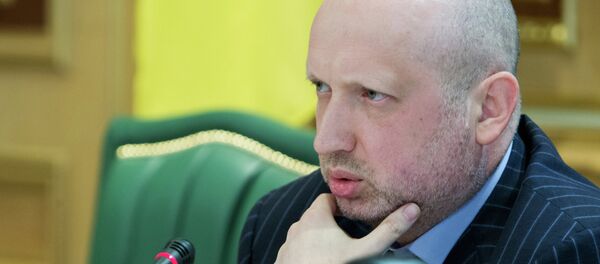Encouraged by the West, Kiev has recently taken a firm anti-Russian stance, however, just a glance at the map of Ukraine and the Russian Federation will show the absurdity of the assumption that the two countries will live as enemies, Indian author and publicist S. Nihal Singh emphasized.
"The crisis over Ukraine is worsening, but it is far from clear at this point whether it will lead to a Western rethink on integrating the country into its sphere of influence… The country is greatly dependent on Russian goodwill, given the pro-Russian inclinations of roughly half its population in the East and its geographical location. Forcing Ukraine to sign on to a Western agenda does not make sense," S. Nihal Singh noted in his article published by The Asian Age.
Mr. Singh noted that most Eastern European countries, ex-members of Warsaw Pact, were "co-opted" into the West, including some former Soviet Republics, namely the Baltic states. Provocatively, these states were not only involved into the EU fold but also became members of the North Atlantic Treaty Organization (NATO)," the author highlighted.
"We are now living in an imitation Cold War atmosphere, with Western sanctions imposed on Russia and NATO forces and military aircraft deployed on Russia's periphery," Mr. Singh pointed out.
The situation in the region has evidently reached an impasse, prompting American and European scholars to suggest that "peace can only come if the West recognizes the divided nature of Ukraine's leanings," the author stressed.
According to Mr. Singh, Germany, the EU's flagship state, may play a crucial role in the tensions' resolution. Chancellor Angela Merkel, the most important leader of the European Union, realizes that peace with Russia is "imperative" for the future of Europe.
"In her [Merkel's] quieter moments, she must know that a Russia sought to be contained by the West through NATO and a ring of Western-aligned nations is a path to conflict, not peace," the author remarked.
However, it remains a mystery if "cooler heads" will prevail in the major Western capitals, Mr. Singh noted, adding that it seems rather ironical that years after the Cold War was over the West — the EU and the United States "are playing the old game."
Washington and Berlin should take a lead and abandon policies which are retrogressive, Mr. Singh believes.




